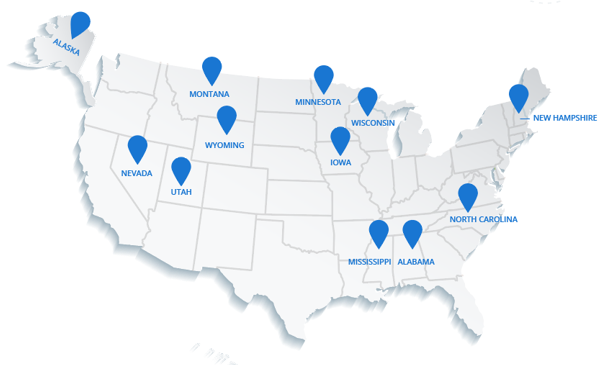If you are looking for top health care jobs with the leaders, sign up on DirectShifts to enjoy the modern way to find new opportunities. DirectShifts makes finding your next job, easier, transparent and more convinient.
- Do Look Good. You want the interviewers to remember you and what you can offer the organization not what you wore. Keep outfits professional and simple to avoid distractions. In the circumstance of an interview, where an employer has to make quick judgments, your outfit is a representation of you. Coming across as well put together and neat is crucial to making a good first impression. For women, wear a suit jacket with a skirt or slacks. Nylons are best if wearing a skirt. If you are uncomfortable in a suit jacket, consider a blouse or dress shirt with a plain cardigan. All dress should be conservative, with minimal accessories, and closed-toed shoes. Keep nails short and either polish-free or neutral-toned. Men should wear a tie, jacket, professional shoes, and matching belt. Also remember to iron, steam, or have your outfit dry-cleaned before the interview it really does make all the difference!
- Don't Use Heavy Perfume and Cologne. The strong scent of the interviewee's perfume or cologne can be distracting and off-putting to the interviewer especially in healthcare. Avoiding scented products also shows consideration for people with asthma, allergies, or aversions to strong scents. It's common for there to be rules regarding the use of scented products in healthcare settings anyways, so anyone interviewing in a healthcare setting should also be attuned to this.
- Do Plan Your Trip. Do have your route and where to park thought out ahead of the interview. Ask interviewers where to park if needed. If local, consider a practice run of the commute in advance of your interview day to avoid missteps on the day of.
- Do Leave Time to Spare. Remember to allot yourself extra time to account for traffic jams, inadvertently making a wrong turn, or public transportation delays. It is ideal to arrive around 15 minutes early, but you might want to give yourself even more time for peace of mind. Of note, though, if you are more than 15 minutes early, wait in your car or elsewhere so that you don't show up too soon before your scheduled slot. The interview committee is taking time from their busy workday to meet with you and the medical world expects punctuality. Arriving on time is expected, but arriving late will make a bad impression and start your interview off on the wrong foot.
- Do Have a Mobile Contact Name and Number. If you run into travel delays because of weather or if someone is late in meeting you, you want to know who to contact beforehand. Likewise, make sure you are aware of who to contact when you arrive at the hospital or clinic lobby for your interview.
- Do Bring Extra Resumes. You want to be sure that everyone at the interview table has the information they need to make an informed decision about your qualifications and skill set. A portfolio of patients seen procedures participated in, research projects or publications, and/or other information that demonstrates your experience are also a huge plus.
- Do Research on the Organization and People. Having some background knowledge about the organization further exhibits your interest in the position. Search for information about the institution by browsing their website or watching their videos online. Also, research the people that will interview you. Familiarize yourself with their professional interests including any clinical niches or research topics they are particularly dedicated to. You can use the information you learn to ask relevant questions of your interviewer.
- Do Ask Thoughtful Questions. Having specific questions shows your level of interest. Remember that you are interviewing them, too! Outlining questions in writing is helpful. It is always appropriate to ask for more information about the position, orientation, support, expectations, duties, planned hours to work, and administrative structure.
- Do Prepare for a Behavioral Interview. A behavioral interview is when the interviewer asks you to describe a particular problem, challenge, or situation you've faced, and then explain your actions and the outcome. Whether the interviewer asks behavioral questions or not, you can use your preparation to answer a variety of questions.
- Don't Be Negative About a Previous Employer. The healthcare world is small, and even more so if you work in a specialty. You may have had a negative past work situation, but always find positive takeaways from the job to discuss with interviewers. Highlight how the challenges and obstacles you faced helped you to grow in your role, rather than complain about particular less-than-perfect aspects of your current or previous job. When asked why you want to make a change consider appropriate responses such as relocation, distance/commute, and new opportunities for growth. Though the salary may factor into your desire to change positions, never discuss this as the motivating factor.
- Be Prepared to Explain Gaps in Employment. Employers and credentialing committees will ask about gaps in employment. Time off for education, illness, or specific family needs are all reasonable and understandable, but if you are out of the workforce greater than one year it may be challenging to retain your skills. If planning for gaps, take advantage of the opportunity to work locums or per diem.
- Do Manage Your Stress During the Interview. Appear confident, calm, composed, and friendly. Interviews can range from a few hours to a fullday, or even two days. Plan your time and how to manage your energy by asking for the itinerary in advance. On the day of the interview, pack an energy bar in case there is not an official lunch planned and drink plenty of water to avoid feeling parched. Learning to meditate is also a good strategy for managing stress—deep breathing will reduce any anxieties and bring clarity and focus to your thinking.
- Don't Get Sidetracked. While it is important to make a personal connection with the interviewer(s), talking about sports, music, etc. can take up precious time. Try to find the balance between answering and asking questions about the role, and connecting on similar interests, but never step out of the interviewee's role.
- Do Take a Chance. Sometimes it is the interviews you are unsure of that become your dream job! It's always worth going to an interview even if you are feeling a bit unsure if it is the right fit.
- Do Be Yourself. Enjoy your interview. Show the interview team what you have to offer. Act natural and imagine yourself working there. Remember to ask the same questions to each interviewer. The last person you interview needs to see the same level of interest and enthusiasm that the first person you interview, sees.
- Do Follow Up. Write a thank-you note to each person you interviewed with. Even if you plan to send a follow-up email sooner, hand-written cards will always be appreciated. Ask individuals for their cards so that you can send a note, or loopback with your initial contact after the interview and ask to extend thanks to the rest of the team. These small acts of appreciation will show that you are both considerate and professional.
This article was originally published on Melnic by Jill Gilliland. Melnic was recently acquired by DirectShifts.
Tags:
Professional Development.png?width=50&height=50&name=Cube-Logo-150x150%20(1).png)
Post by
DirectShifts
March 30, 2022
March 30, 2022




Comments